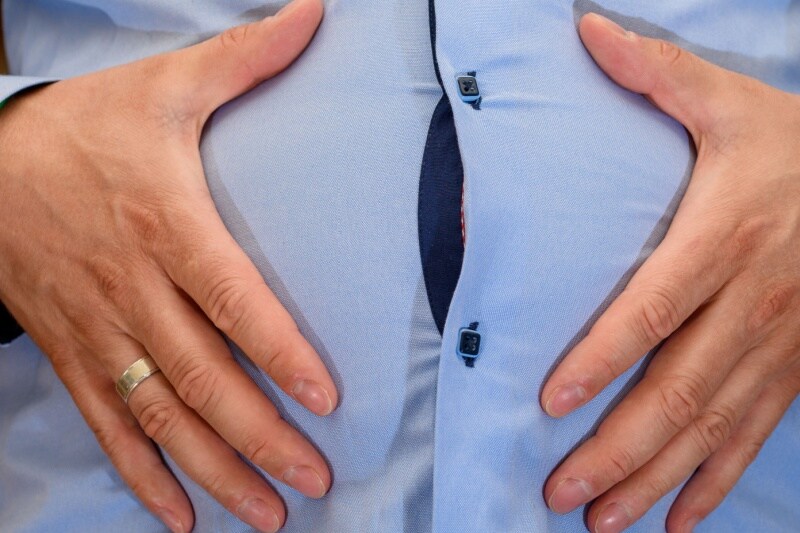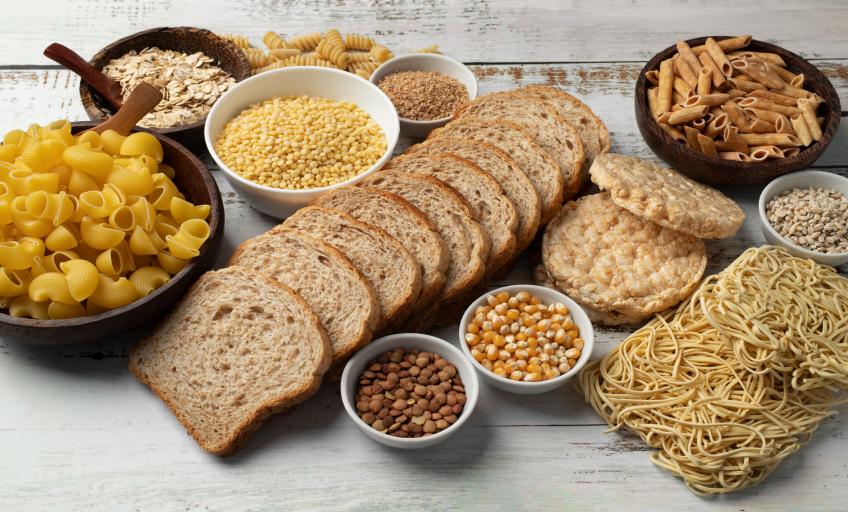Bloating is a common health problem often triggered by consuming gas-producing food items. Emotional and microbiome changes, along with various underlying causes such as IBS (Irritable Bowel Syndrome) or IBS (Inflammatory Bowel Disease), can also lead to severe bloating.
What you need to know:
What is bloating?

Stomach bloating occurs when the stomach expands due to internal pressure, creating a feeling of fullness or tightness. This can make the stomach appear larger, and the clothes feel tighter. Various factors, such as eating habits, responses to certain foods, or pre-existing medical conditions, can cause bloating. It can be relieved, but most treatments depend on the cause.
How does bloating happen?
Here are some common causes that trigger bloating:
- Gas sensitivity: Individuals suffering from Irritable Bowel Syndrome (IBS) often have an increased sensitivity to gas, which can cause symptoms such as pain, cramps, and diarrhea.
- Small Intestinal Bacterial Overgrowth (SIBO): SIBO is less frequent, as the bacterial population in the small intestine is typically lower. However, individuals with a history of intestinal surgeries or those suffering from IBS with diarrhea are more susceptible to SIBO.
- Gynecological conditions: Certain conditions related to the ovaries or uterus may cause bloating. Regular medical investigations are crucial to identify any potential issues.
- Constipation: Severe constipation can cause abdominal pain and bloating. The longer the stool stays in your colon, the more likely it is to be fermented by bacteria, leading to more gas and bloating.
Ways to get rid of bloating
If you were wondering – “how to get rid of bloating,” here are some strategies and tips that can help avoid bloating in the first place:
Try a low-FODMAP diet
Bloating frequently happens with IBS, in addition to other symptoms like abdominal pain, diarrhea, and constipation. Reducing the intake of healthy carbohydrates — specifically, fermentable oligosaccharides, disaccharides, monosaccharides, and polyols (FODMAPs) — can alleviate bloating and other associated symptoms. High-FODMAP foods include:
- Grains such as wheat and rye
- Dairy products, including milk, yogurt, and cheese
- Fruits like apples, mangoes, and peaches, as well as fruit juices and dried fruits
- Vegetables including cabbage, asparagus, onions, and green beans
- Pulses like lentils and beans
- Sugar-free gums and honey
Try probiotic supplements
Probiotic supplements can help relieve the symptoms of bloating and other digestive issues by enhancing the number of healthy bacteria in your gut. Some of these probiotic supplements are:
- Kimchi
- Yogurt
- Pickles
- Kombucha
Replace sodas with water
Fizzy, carbonated beverages contain carbon dioxide, which is responsible for the fizziness in soda and similar drinks. However, these drinks can also lead to bubbling and bloating in the stomach. Therefore, cutting down on sugary beverages can go a long way toward reducing the effects of bloating.
Increase fiber gradually
Consuming excessive fiber can increase gas and bloating. However, incorporating adequate fiber into your diet and ensuring hydration can help avoid this issue. Nutrition experts suggest that adults consume between 18 to 38 grams of fiber daily. In addition, it is advisable to gradually increase fiber consumption to give the body time to adapt to the dietary changes.
Exercise

Easy physical activities such as walking or cycling around the neighborhood can help keep bloating in check. In addition, regular exercise can also help in managing stress and depression, which are risk factors for bloating and gastrointestinal issues.
Prioritizing your health is essential for yourself and those around you. Maintaining your daily physical activities and seeking medical advice when needed is crucial to keeping bloating at bay.
Stay tuned to the Activ Living Community. Keep updated with the latest health tips and trends through expert videos, podcasts, articles, and much more in nutrition, fitness, mindfulness, and lifestyle conditions like Asthma, Blood Pressure, Cholesterol, and Diabetes. Activ Living ke saath sahi sehat ki shuruaat ABHIkaro.
You may also be interested in the following blogs:
Popular Searches
How to lower blood pressure | Fruits good for liver | Unhealthy foods | Ragi Benefits | Basal Metabolic Rate | Acupressure points for High Blood Pressure | Ayurvedic medicine for blood pressure | How to control cholesterol at home | Homeopathy for Asthma | Biological Age | Home remedies for TB | Natural beta blockers | Negative effects of internet | Types of walking | Blood pressure calculator | Blood sugar calculator | BMI Calculator





 1800-270-7000
1800-270-7000






